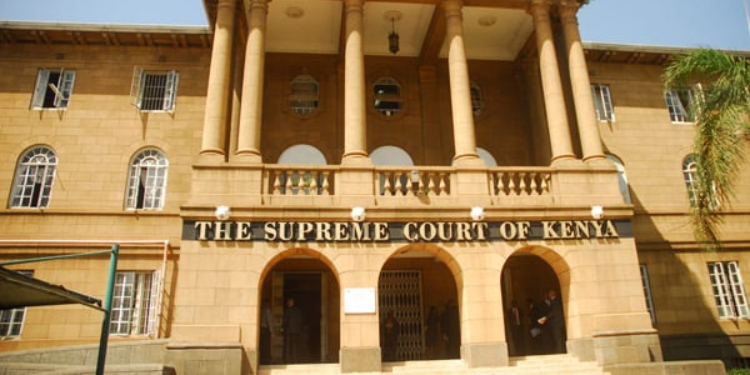The Court of Appeal in Nairobi has dismissed the appeal of Augustine Mwendwa Pascal, who was convicted of defiling an eight-year-old girl in Mbooni West District, Makueni County.
Augustine Mwendwa had sought to overturn both his conviction and life sentence, arguing that the trial and appellate courts erred in law and fact.
Pascal was initially convicted by the Senior Resident Magistrate’s Court at Tawa for defilement under Section 8(1) as read with Section 8(2) of the Sexual Offences Act.
The offence occurred on November 5, 2015, when Pascal allegedly lured the minor, MK, to his house, gave her money, and sexually assaulted her.
Prosecution Evidence and Medical Findings
During the trial, the prosecution presented five witnesses.
MK, the victim, testified that Pascal, a neighbour, took her to his house, gave her two KSh50 notes, and sexually assaulted her.
Her father, referred to as PW2, reported the incident to the Kikima Police Station and took her to Kikima Hospital for treatment.
A village elder, Laurence Kiloli Musyoka (PW3), arrested Pascal at the area chief’s instructions.
Investigating officer PC Collins Aoko (PW4) rearrested Pascal and took both him and the minor to Mbooni Hospital.
Dr. Patrick Mutinda (PW5) examined MK and found her clothes stained with blood, her vagina lacerated and bleeding, her vulva swollen, and her hymen broken—clear signs of penetration.
He also conducted an age assessment, confirming MK was eight years old.
Augustine Mwendwa’s Arguments
Augustine Mwendwa denied the charges, claiming he was framed by the victim’s father, who allegedly demanded Ksh. 200,000 to drop the case.
His father (DW2) and brother (DW3) supported his alibi, stating he was at his shop and later in Wote on the day of the incident.
In his appeal, Augustine Mwendwa raised five grounds:
- Failure to re-evaluate prosecution evidence.
- Insufficient medical evidence to prove penetration.
- Violation of Article 25(c) of the Constitution.
- Flaws in the prosecution’s case under Section 163(1) of the Evidence Act.
- Inadequate consideration of the defence.
He also challenged the administration of the voir dire examination, the accuracy of the age assessment, and the identification process.
Mwendwa argued that the charge sheet was defective due to the wording “sub-section 2 of the Sexual Offences Act” instead of “Section 8(2).”
He further claimed inconsistencies in the amount of money allegedly given to the victim and questioned the qualifications of the examining doctor.
Court’s Ruling
The appellate judges—Justices P. O. Kiage, W. Korir, and Joel Ngugi—rejected Augustine Mwendwa’s arguments.
They found that the charge sheet’s wording was a minor error, curable under Section 382 of the Criminal Procedure Code, as it did not result in a miscarriage of justice.
On the voir dire examination, the court confirmed that the trial magistrate had properly assessed the minor’s understanding of truth and oath-taking.
The judges cited precedent from Japheth Mwambire Mbitha v Republic [2019] KECA 813 (KLR), affirming that the minor’s testimony was admissible.
Regarding the age of the complainant, the court held that medical evidence from PW5 was credible and sufficient to establish that MK was eight years old.
They referenced Mwalango Chichoro Mwanjembe v Republic [2016] KECA 183 (KLR), which supports age verification through medical assessment.
Also Read: Court Maintains Equality in Marriage Depends on Contribution, Not 50:50 Split
The court also dismissed the challenge to Pascal’s identification, noting that he was a known neighbour and the incident occurred in daylight.
The judges found the evidence of penetration compelling and consistent with the medical findings.
Sentence and Final Determination
Augustine Mwendwa’s plea for sentence reduction or consideration of time served was denied.
The court cited the Supreme Court’s decision in Republic v Mwangi; Initiative for Strategic Litigation in Africa (ISLA) & 3 Others (Petition E018 of 2023) [2024] KESC 34 (KLR), which affirmed that courts lack jurisdiction to alter mandatory minimum sentences under the Sexual Offences Act.
Also Read: Court Overturns Daniel Mwangi’s 25-Year Sentence for Lawrence Oluoch’s Murder
As life imprisonment is an indeterminate sentence, Section 333(2) of the Criminal Procedure Code, which allows for time served to be considered in sentencing, was deemed inapplicable.
The Court of Appeal concluded that the prosecution had proven its case beyond a reasonable doubt and upheld the concurrent findings of the lower courts.
The appeal was dismissed in its entirety, and the court certified the decision as a true copy of the original.
Follow our WhatsApp Channel and X Account for real-time news updates.













































































